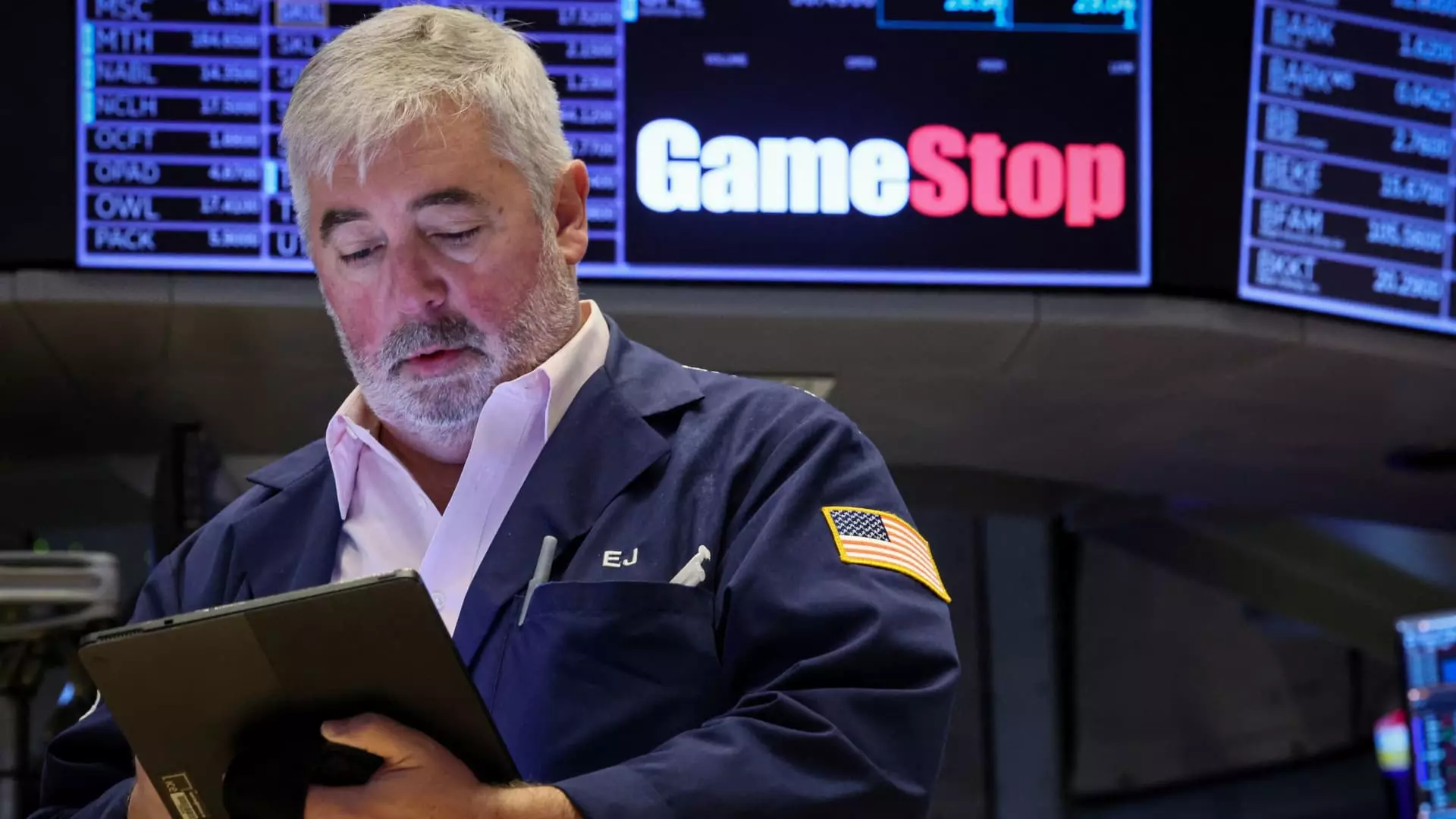GameStop’s eagerly anticipated annual shareholder meeting was marred by technical problems that left investors frustrated and disappointed. The meeting, scheduled to start at 11 a.m. ET, was hosted on ComputerShare, but many users encountered error messages when trying to access the event. Social media platforms were flooded with complaints about the inability to load the page, and even CNBC faced challenges in accessing the stream. The meeting finally kicked off at 11:48 a.m. ET, only to be abruptly adjourned due to persistent technical difficulties. GameStop promised to update stakeholders on the rescheduled event, but the company remained unreachable for comments on the matter. The situation prompted a customer service representative from ComputerShare to acknowledge the overwhelming influx of traffic that overwhelmed their servers, causing the disruption in the meeting.
The chaos at GameStop’s shareholder meeting happened against the backdrop of a renewed frenzy surrounding meme stocks, spearheaded by Keith Gill, popularly known as Roaring Kitty. Gill reemerged on social media after a three-year hiatus, reigniting enthusiasm among retail traders with his bold investments in GameStop. The stock experienced a surge of 14.4% on the challenging day of the meeting, reflecting the volatile nature of meme stocks. GameStop’s recent success in raising over $2 billion through an equity sale further fueled the excitement within the trading community. However, all eyes were on Roaring Kitty’s trading activities, as his decisions could significantly impact the stock price. A sudden sell-off of GameStop shares coincided with a surge in call options associated with Roaring Kitty, triggering a rapid decline in their value. The uncertainty surrounding Roaring Kitty’s involvement in these options added to the market’s apprehension and raised questions about the stock’s future trajectory.
The events surrounding GameStop’s shareholder meeting and Roaring Kitty’s influence highlight the inherent risks of speculative trading in meme stocks. Retail investors, inspired by online personalities like Roaring Kitty, often enter volatile markets without fully understanding the complexities and consequences of their actions. The sharp fluctuations in GameStop’s stock price and options trading demonstrate how quickly fortunes can change in the world of meme stocks. While the allure of quick profits may be enticing, investors must exercise caution and conduct thorough research before engaging in speculative trading activities. The GameStop saga serves as a cautionary tale for those tempted by the promise of easy gains in unpredictable markets.
Lessons Learned and Moving Forward
In the aftermath of GameStop’s tumultuous shareholder meeting and the resurgence of meme stock trading, investors and market participants must reflect on the lessons learned. It is essential to prioritize transparency, communication, and technical preparedness in organizing significant corporate events to avoid disruptions and maintain credibility with stakeholders. Additionally, traders should approach speculative investments with a balanced mindset, considering both the potential rewards and risks involved. Regulators and market authorities may also need to adapt their oversight strategies to address the evolving landscape of meme stock trading and online influence on market sentiment. By learning from past experiences and embracing a more informed approach to investing, stakeholders can navigate the unpredictable nature of meme stock trading more effectively and responsibly.

